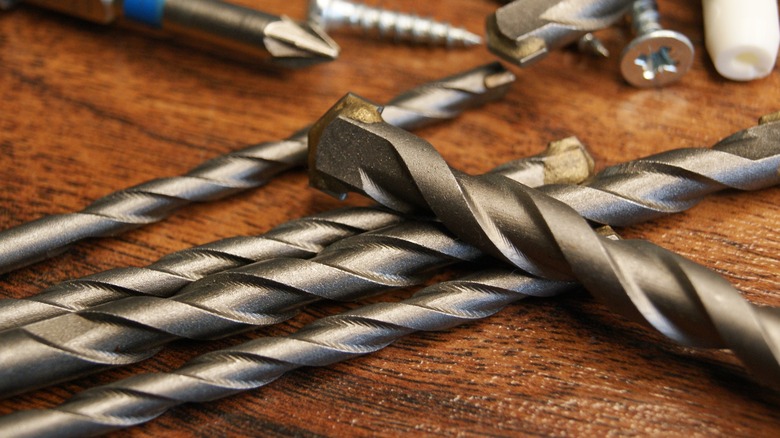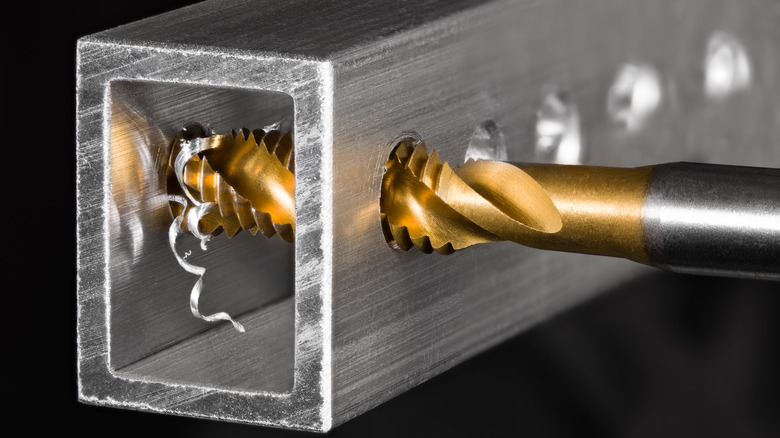Cobalt Vs Carbide Drill Bits: What Are They Good For & How Do They Compare?
At first glance, there probably doesn't seem to be much to drills. Simply install a bit, mark where you plan to drill, and drill away. However, the fact is there's a lot to consider when drilling, hence why there are so many mistakes folks tend to make when drilling around the house. One factor to consider is whether you have the right drill bit for the task you seek to accomplish. Much of this comes down to the material the bit is made from, as this can make all the difference to how long the job takes and how well your drill bit holds up.
There are several bit material types to keep in mind ahead of your next project. The most common type you'll encounter is high-speed steel (HSS), but there are also diamond, cobalt, and carbide drill bits. Each type is best suited for a particular task. Cobalt bits are tough, making them ideal for working with hard metals like stainless steel and cast iron, along with softer materials, without much hassle. Carbide bits are made of even tougher material than cobalt. Thus, while they can cut through hard metals too, they have the edge for masonry and general stone-working tasks thanks to their increased durability. This covers in which contexts carbide and cobalt drill bits should usually be used. The next question to explore is, what makes these bits so different?
Cobalt and carbide bits differ on multiple fronts
While there's some minor overlap between cobalt and carbide drill bits, these two bit types are, for the most part, vastly different. First, cobalt, which is technically comprised of a steel alloy with only a small percentage of cobalt, is a much softer material than carbide. Therefore, cobalt bits will need to be resharpened after extensive use. This means carbide is the more durable of the two. While cobalt bits can hold their own and endure high temperatures, if you need higher heat resistance and cleaner cuts for more precise jobs, carbide is the way to go.
With that said, carbide isn't impervious to damage. The material is brittle and prone to breakage, and worse yet, unlike cobalt, its hardness makes it much more difficult to resharpen. As a consequence, you'll have to learn to sharpen them yourself with the right specific tools, pay someone to do so, or just replace them when the time comes. Additionally, generally speaking, carbide bits tend to be more expensive than cobalt bits. They are made from a considerably more durable and longer-lasting material, though; used responsibly, you shouldn't have to replace them as routinely as cobalt bits, helping offset the extra cost.
Choosing the right drill bits from Harbor Freight, Home Depot, or any other hardware store can be a tedious task. At least knowing the difference between carbide and cobalt bits can help narrow that decision down when placed in the context of your latest drill-intensive job.

